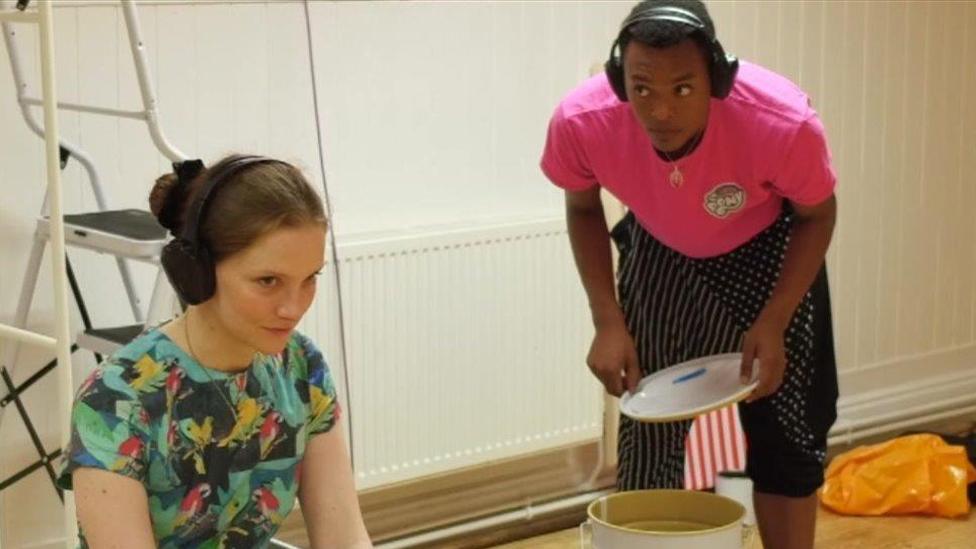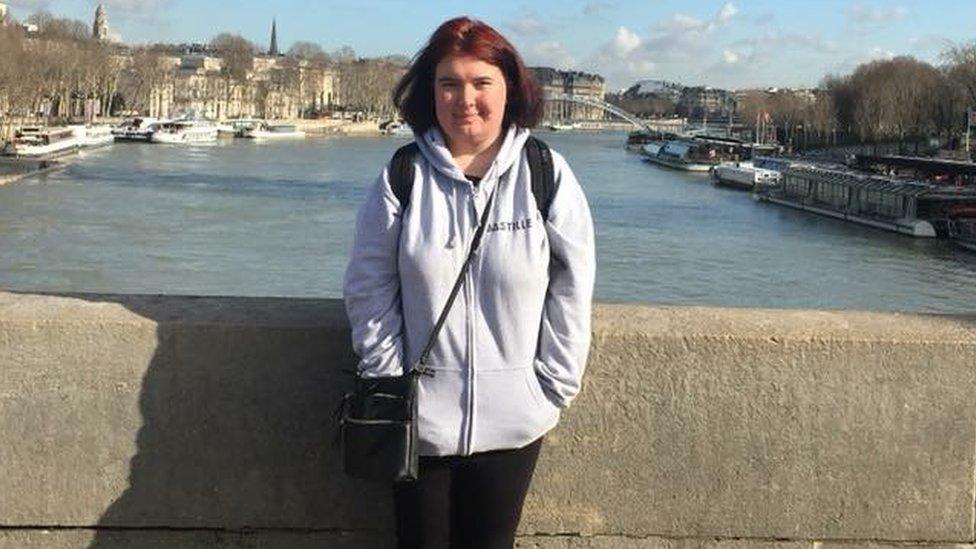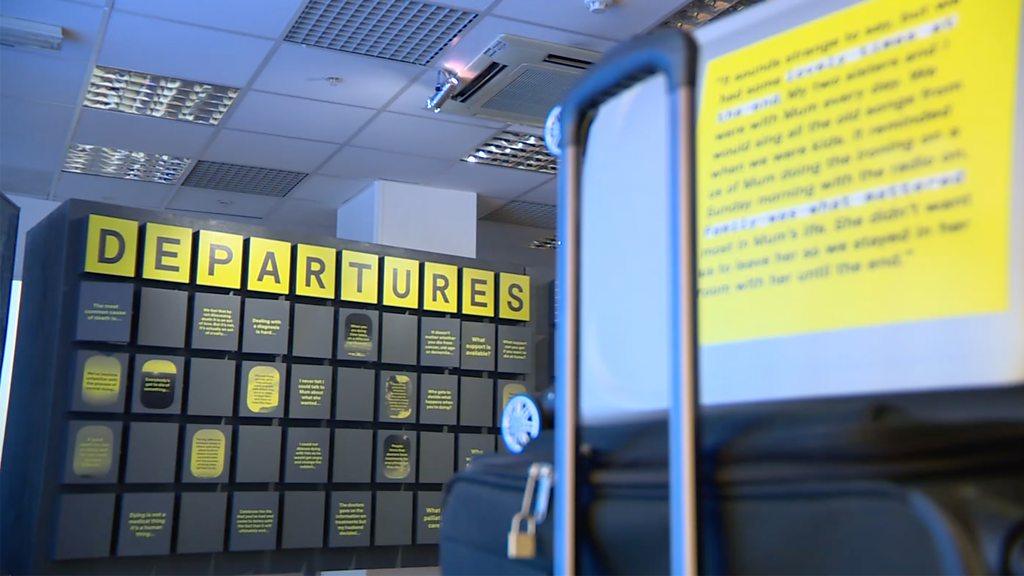Cardiff and Swansea hospices inspire The Colours play about death
- Published

Morfydd Clark and Che Francis in rehearsal for The Colours
People using Welsh hospices have inspired a new play about the way we deal with death.
The Colours uses interviews with people attending Ty Olwen in Swansea and Velindre Cancer Centre in Cardiff as its script.
Recorded words are streamed into the headphones of actors, who deliver them during the drama, which opens on Tuesday at the Soho Theatre in London.
The play's creator wants to "lift the stigma" around terminal illness.
Harriet Madeley, who has written the play, carried out interviews with patients at the hospices.
She joined ward rounds and spoke to medical staff as well as people receiving palliative care.
Ms Madeley said: "I wanted to dispel some of the fear we feel around life-limiting illnesses. Not to normalise it, but to access some of the people who are going through it.
"As soon as you go and speak to people you understand it, you humanise it. And the theatre is the medium for me to do that."
The play is about five people on a Welsh beach who use memory, fantasy and reality as they approach the end of their lives.
I hope people will leave the play with a stronger awareness of their own mortality, and not in a way that frightens them
The actors wear headphones and listen to recorded interviews with hospice patients, repeating their words during the dramatised events on stage.
Ms Madeley, who hopes to bring the show to Wales next year, said the resilience of the patients she met had inspired the work.
"A lot of this is about human spirit and character. I find that you tend to get more surprising, richer, funnier and more meaningful characters if you go with real people," she said.
"It is so important that we lift the stigma. We are all getting older, we are all getting more long-term conditions.
"Fifty years ago people were much more often dying at home, surrounded by family members, and dying quicker from infectious diseases."
'Finite and precious'
Two of the characters whose stories appear in the play are Joe and his wife Jill from Swansea. Joe has terminal cancer and attends the day centre at the Ty Olwen hospice every week.
He said it was a "strange experience" to be interviewed in order to be portrayed on stage, but said he hoped it would help others to understand what it's like to live with a terminal illness.
Joe said another patient, who had not told anyone about his cancer, asked him why he was being so open about the condition.
"And I said, well, you are telling people, showing people, not just how we feel but - if they come around the corner and they get it some day - how they will feel too.
"You have got to be positive, you know. I didn't in the beginning, I've got to be honest. I didn't feel positive whatsoever. But now, going up to Ty Olwen and talking to other people - that helped me a lot."
Ms Madeley said she wanted audiences to be inspired by the patients' words.
"I hope people will leave the play with a stronger awareness of their own mortality, and not in a way that frightens them.
"The play does acknowledge that life is finite and precious, and I think it would be difficult to have a meaningful life if it didn't end," she added.
It is so easy for their voices to be lost and not to be heard
Dr Idris Baker, consultant in palliative medicine at Ty Olwen, worked with the producer to capture the voices of patients at the hospice.
He said the play allowed patients' voices to be heard.
"For people living with an illness it is sometimes harder for their voices to be heard.
"And a lot of the people we see here are living with a life-shortening illness and they are not going to survive as long as they might have expected, and it is so easy for their voices to be lost and not to be heard.
"A hundred years ago, all of us would have had experience of people in the family dying, and of people living with life-shortening illnesses.
"It's a good thing that fewer people die young than used to, but it does mean most of us don't have quite so much experience of that - experience of people close to us having a serious illness, a life-shortening illness, or coming to the end of their lives."
Dr Baker said many patients were keen to share their experiences.
"Keen for themselves, so that they can leave something of what they were thinking. But also keen to help other people in the future," he added.
The Colours is at the Soho Theatre in London, external until 17 August.
- Published26 February 2018

- Published12 May 2019

- Published19 January 2016
